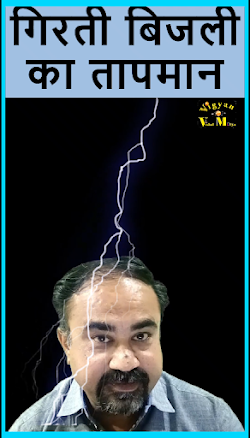Creative common liscence
Science Cartoon by Vishal K. Muliya is licensed under a Creative Commons Attribution-NonCommercial 4.0 International License. Based on a work at https://vkmuliya.blogspot.com.
Tuesday, April 30, 2024
Windy Nature of the Neptune
Windy Nature of the Neptune
Neptune, the eighth and farthest planet from the Sun in our solar system, is known for its fierce winds. The winds on Neptune can reach speeds of up to 2,100 kilometers per hour at the equator.
Monday, April 29, 2024
Blood Vessels are too long to encircle the Earth
Blood Vessels are too long to encircle the Earth
The human circulatory system is a marvel of complexity, with blood vessels traversing every nook and cranny of the body.
If you were to lay out all the blood vessels in an average adult end to end, they would stretch over 1 Lakh kilometer, enough to encircle the Earth more than twice! Periphery of the earth is 40,075 km at equator.
Such a vast expanse of blood vessels highlights the remarkable efficiency of our circulatory system in sustaining life.
Saturday, April 27, 2024
वो Muscles जो कभी नहीं थकते !
वो Muscles जो कभी नहीं थकते !
The heart muscle, known as the myocardium, is unique in its ability to contract continuously without fatigue.
Unlike skeletal muscles, it does not tire because its energy supply comes from the constant flow of oxygenated blood.
If the heart muscle were to get exhausted, it would fail to pump blood, leading to immediate death.
Here's a short note of around 50 words on "Heart Muscle does not get tired, or the tired person will die": The heart muscle, known as the myocardium, is unique in its ability to contract continuously without fatigue. Unlike skeletal muscles, it does not tire because its energy supply comes from the constant flow of oxygenated blood. If the heart muscle were to get exhausted, it would fail to pump blood, leading to immediate death. Here's a short note of around 50 words on "Heart Muscle does not get tired, or the tired person will die": The heart muscle, known as the myocardium, is unique in its ability to contract continuously without fatigue. Unlike skeletal muscles, it does not tire because its energy supply comes from the constant flow of oxygenated blood. If the heart muscle were to get exhausted, it would fail to pump blood, leading to immediate death. Here's a short note of around 50 words on "Heart Muscle does not get tired, or the tired person will die": The heart muscle, known as the myocardium, is unique in its ability to contract continuously without fatigue. Unlike skeletal muscles, it does not tire because its energy supply comes from the constant flow of oxygenated blood. If the heart muscle were to get exhausted, it would fail to pump blood, leading to immediate death.
Tuesday, April 23, 2024
Animals में कुंभकर्ण: Snail can sleep for 3 years
Animals में कुंभकर्ण: Snail can sleep for 3 years
Certain snail species exhibit an extraordinary survival tactic: hibernation (sleeping ) for up to three years. During this extended dormancy, they seal themselves within their shells, conserving moisture and reducing metabolic activity. This adaptation, akin to aestivation, helps them endure harsh conditions such as drought or extreme temperatures. By entering this state of suspended animation, snails can conserve energy and survive when resources are scarce. When favorable conditions return, they emerge from their extended slumber, resilient and ready to resume their slow-paced life. This remarkable ability highlights the remarkable adaptability of these seemingly simple yet remarkably resilient creatures.
Science of स्वादिष्ट खाना
Science of स्वादिष्ट खाना
Tongue is a tasting marvel, housing around 8,000 taste buds, with each bud containing about 100 cells dedicated to sensing flavors. Meanwhile, your nose is a scent powerhouse, capable of distinguishing an astonishing 1 trillion smells. Together, they form a dynamic duo, enabling you to savor the intricacies of food and detect a vast array of aromas in the world around you. Truly, our senses are remarkable gateways to experiencing the richness of life.
Monday, April 22, 2024
Sunday, April 21, 2024
Earth Day 2024: Why, When, Where
Earth Day 2024: Why, When, Where
Earth Day is an annual event on April 22 to demonstrate support for environmental protection. First held on April 22, 1970, it now includes a wide range of events coordinated globally by EARTHDAY.ORG In 1969 at a UNESCO Conference in San Francisco, peace activist John McConnell proposed a day to honor the Earth and the concept of peace, to first be observed on March 21, 1970, the first day of spring in the northern hemisphere The official theme for 2024 is "Planet vs. Plastics." 2025 will be the 55th anniversary of Earth Day.
Friday, April 19, 2024
Octopus has 3 Hearts and Blue blood !
Octopus has 3 Hearts and Blue blood !
Octopuses possess three hearts: two branchial hearts that pump blood through the gills and one systemic heart that circulates oxygenated blood throughout the body. Unlike humans, their blood is blue due to the copper-based molecule, hemocyanin, which transports oxygen. This adaptation allows octopuses to thrive in low-oxygen environments.
Thursday, April 18, 2024
Moon Surface: Too Hot & Too Cold to live
Moon Surface: Too Hot & Too Cold to live
The temperature of the Moon's surface is extreme, ranging from scorching heat to bitter cold.
During the lunar day, temperatures can soar up to 127°C (260°F) due to direct exposure to the Sun's rays. Conversely, during the lunar night, temperatures plummet to around -173°C (-280°F) as there is no atmosphere to trap heat.
Understanding these temperature fluctuations is crucial for planning lunar missions and designing equipment that can withstand such harsh conditions.
